I’m so happy and grateful to have my priorities rearranged, truly. To step into this kind of life at this point in my life, I’m really grateful for it.
The return of Outer Range for its second season on Prime Video and the series premiere of David E. Kelley’s A Man In Full on Netflix acknowledge the perpetual fractured man trope that revolutionized television. These are men crippled by unfathomable loss and shortcomings. They strive to fill voids, and often, they’re fated to fail. Ardently human, they telegraph tragedies that are not only inevitable, but necessary in service of compelling storytelling. And the connecting thread between the aforementioned shows is the always welcome presence of one Tom Pelphrey, an actor who is most widely recognized for his fan-favorite, Emmy-nominated turn as Ben Davis on Ozark.
On Outer Range, Pelphrey stars as defeated Perry, the eldest son of a ranching, Wyoming clan. He remains, of course, a shell of the man he once was. His wife long missing, his young daughter has now also vanished. Then there’s the murder he’s still desperately trying to cover up. Last season saw Perry, dreaming of finding his wife on the other side, take a leap of faith into the big ol’ time-warping void that inexplicably appeared on his family’s pasture, only to have it seal up behind him.
Meanwhile, Pelphrey brings his A-game to A Man In Full as Raymond Peepgrass, the kind of snot-nosed, suck-up loser all grown up, succumbing to a festering primal urge: defeating his adult bully. A subordinated loan officer of the bank owning much of conglomerate king Charles Croker’s (Jeff Daniels) outsize debt, Raymond—deliciously unhinged, unmanageably resentful, and conniving with a cavalier cruelty—attempts to capitalize on the former college football star’s fall from grace.
Anthem reached out to Pelphrey for an in-depth conversation in Philadelphia last month, and recently reconvened for an exclusive photoshoot at The Whitby Hotel in Midtown Manhattan.
A Man In Full is now streaming on Netflix, and Outer Range is available on Prime Video.
[Editor’s Note: The following conversation has been lightly edited for length and clarity.]
Hi, Tom. I’m loving the beard!
Thank you! I’m starting to love it, too.
I gather it’s for the project you’re working on right now.
Yeah. Maybe I’ll keep it around for a while after this is over. We’ll see.
How’s the shoot coming along?
It’s incredible. It’s a really great job. The scripts are fantastic. Everybody’s jelling. We’re a few months in now. Everybody’s still looking around—waiting for the other shoe to drop. [laughs]
Sounds like a dream. What’s the show called? The last time I checked, it was still untitled.
We’ll see what it ends up being. It’s by Brad Inglesby, who also created Mare of Easttown.
And you’re filming in Philadelphia.
Just outside Philly.
That’s a stone’s throw from Howell Township where you’re originally from.
Yeah! I came to Philly a decent amount when I was younger. One of the nice things about where we are now is that, as you said, it’s about an hour away from where I grew up, where a lot of my family still is. Just yesterday, my mom and my grandma came to spend time with Matilda, my daughter, which is really special. It’s one of the perks of this job: being so close to home, getting to see family. I ran up the “Rocky Steps” years ago. I’ve gotten a cheesesteak in South Philly. I’ve done all the obligatory Philly things. I love it here. It’s great to be back on the East Coast, too.
Are you familiar with the cheesesteak rivalry in South Philly? There are these two shops located across the street from each other that both claim to have the better sandwich.
What are the two shops?
Oh, I don’t remember the names off the cuff. [It’s Pat’s King of Steaks and Geno’s Steaks.]
I mean, what we really need to do is find a true blue Philly person and ask them what’s the best place to get a cheesesteak ‘cause it might be that it’s neither of those!
I had a proper Pelphrey marathon, and I feel like I’ve been living with you a little bit. Taken together, Outer Range and A Man In Full is a great showcase for you. Perry and Raymond are both broken men, yet their circumstances and temperaments couldn’t be more different.
That’s pretty on the money what you said. Perry’s speed is a lot slower, and part of it is the ranch and that life. He’s more grounded. And because of the things that have happened to him, he’s more back-foot, letting things happen to him a bit. Raymond is similarly kind of broken, but much more aggressive in trying to get what he wants. He has a faster energy, and he’s way less grounded.
Oh god, yeah.
Also, as you know, they’re each taking place in a very different world. The world of Outer Range is obviously very different than the world of A Man In Full. That’s one of the first things you look at when you get a job. What is the world that the writer’s trying to create? If you understand that right, then you get your palette of possible colors that’s based on the world they live in.
After Ozark, you’re continuing to put your dramatic chops on full display. You once said, “The stasis for Perry is crisis.” Where do you find the stamina for emotionally grueling roles?
I think we all have a kind of essence. Different performers have different things that they can offer from their core. And as much as the styles can vary, there’s a similar thread in the characters that I find myself playing, or perhaps in what I find myself drawn to or what other people want me to play. You just try and make it all personal with each job in service of the story. So where does it come from? I don’t really know… When I was younger, it was much more deliberate. Now the technique has started to dissolve a little bit and, as that happens, you have a greater ability to let the role or the project tell you what it wants, rather than me trying to put my ideas on it.
It must feel profound going through those different stages of evolution as a performer.
I think that’s right, and I think this is true of most things. It’s the 10,000 hours or whatever the rule is. I love what I get to do and I take it seriously. So you’re conscientious. You wanna do a good job. You wanna show up. Always, most importantly, I want to make sure that whatever I was doing was serving the story that we were trying to tell. In the most freeing way possible, you’re just one small part of what’s happening, so the luxury as an actor is to take it all in and then put the blinders on and only pay attention to what you have to do. The desire to do your job well obviously also means you’re putting in a lot of work, which I still do. But when I was younger, I think there was a bit of a tightness to being like, “I want to be good.” Then you do it and you’re grateful to be able to do it for a while, and you learn a lot as you go, from things that you might have done well, certainly from a lot of failure, and a lot of things that you wish you had done differently. You start to loosen up, realizing that you know the basic things and you know how you work. You can just trust it all.
You once said, “It’s one thing to do good work. It’s one thing to do good work on a good show. And it’s another thing to do good work on a good show that everyone watches.” You’re doing good work on good, popular shows. What is your decision making process?
It’s always, always, always, always, always based on the script. Always. It’s like building a house: you wouldn’t start building without architectural plans. That’s what a script is. The script is telling you what you’re gonna build. If that’s in bad shape, it’s probably a bad idea to start filming it. A script might need work, but I’ve never seen it get completely rescued in production. I think it sometimes happens that we don’t live up to the full potential of what a script could be. Certainly, the production, the actors, and the director can elevate a script, which is their job. But no, it’s always, always, always the script. And the most amazing directors only work on great scripts. So if so-and-so director wants you to do something, you say “yes” because it’s implied that part of what makes a great director great is that they also only work on great scripts. You want to control what you can control. As an actor, you can’t control much so you learn very early on that what you can control is with your “yes” and your “no.” You just try. I try my best to be responsible with that because I don’t wanna say “yes” to something that I don’t fully believe in, or to something that somebody else could do a better job of doing because that’s not fair to the project. It takes so much work to make any of these things happen. It takes years and years, and tears and sweat and fights and rewrites and so much money. So I think it’s important to be all in when you get a chance to say “yes.” Thankfully, over time, I’ve had more opportunity to be involved in the discussions about the material that I like, which from the beginning was always how I would define success.
You have fans returning to Outer Range, and I can’t wait for people to see your work in A Man in Full. You really get to flex your comedic muscles. You had me cracking up.
Oh man, a show like A Man In Full is where David E. Kelley really shines. He has such a wonderful understanding of how to thread that needle with the comedy and the drama that I think we’ve all come to know and love him for. Coming off of working with him on Love & Death, this was a no-brainer for me. It was a no-brainer to play Peepgrass. [laughs]
He’s ridiculous! Also, I love him? What was your reaction when you saw him on the page?
Obviously, as soon as I read it, I was also laughing out loud. I was a bit surprised by them wanting me to play it because he is different than what I usually get cast as. That was also very exciting.
I think we’ve all known a Peepgrass, right? At one point, he admits, “I’ve been bending over and taking it my entire life.” It’s not unusual for things to go sideways with him. I obviously enjoy the cartoony aspects of him. I also appreciate that he’s not completely blinded by resentment. He admires Charles Croker as much as he detests him. That makes him complex.
I agree. I think he’s very complex. One of the themes in the story has to do with looking at what happens when we compare ourselves to others. There’s less of an internal litmus to measure our progress or worth or value, and more of comparing ourselves to how others see us or how the outside world might think about us, which is a dangerous thing to do. So one of the cool things about this show was taking that idea and cranking it up to like a 13 and seeing what happens.
Speaking of cranking it up, I want to talk to you about that Big Red Dog scene. Had you done anything like that before? Clearly, a scene like that requires something a little extra.
[laughs] No, I’d never done anything like that. And I was nervous! It’s funny, man… At the time that we started this show, I knew that Kaley [Cuoco] was pregnant and I knew that I was gonna be a dad. So you start thinking differently real quick, whereas in the past, I’m game for anything and I’ve always been that way. Suddenly, I found myself thinking, “Well, do I want that on camera? Is this something I want my daughter to be able to see someday?” Ultimately, I understood its purpose and I understood the power of it so it made sense to do it. But yeah, it’s pretty wild.
You’re obviously going to a vulnerable place as an actor, which I admire a whole lot. At the same time, you’re playing the comedy and I figure that you’re having tons of fun doing it.
Oh my god, it was a blast. It was the best, man. It was hilarious. And once you decide to do something, you just gotta jump off that cliff. It was amazing. I mean, you’re working with Jeff Daniels. Jeff belongs in the dictionary next to the word “professional,” truly. He’s in every way the way you want your partner to be a pro. Everybody says that about him. It was a lot of fun working with him, and Regina [King] was directing—two people that I love. And Diane [Lane]. They kept a very professional but light atmosphere on that whole show. This character was a blast. That’s actually a theme I’ve noticed working on David E. Kelley’s writing: it’s a lot of fun as an actor. It reminded me that this can all be fun. I know I can be a little intense and I take it seriously and I like that about myself and that’s all fine, but there are times where it can also be a lot of fun.
So Outer Range is a tad difficult to discuss because it’s just a landmine for spoilers. Coming back to it for season two, did you know where you’d ultimately end up with Perry?
I had a pretty good idea where we were going when we started, and certain things changed as we went along in some ways. It’s more of a juggling act in season two in terms of how much we want to spend time with the character being constantly amazed by where he is versus just being able to go after what he wants in that moment. I don’t know if we got that ratio right, but I think we did. There’s so much at stake in what Perry decides to do, and there are varying levels of success. It was important to keep track of that and modulate. When am I moving towards what I want? Is what I want different now that I’m here? If it is, why? Perry is a challenging character in some ways that are less obvious. It’s always an interesting challenge to play a character who maybe doesn’t really know what he wants. This is in contrast to Peepgrass, who very clearly knows what he wants.
I remember you saying how acting used to occupy much more of your identity at the start of your career. Acting is how you defined yourself. Now you’re a family man, too, and acting is a piece of the pie. How do these big life development reframe your relationship to your art?
Oh, it changes everything. It’s a lot of the obvious things. Anything I agree to do means time I can’t spend with my family. It’s important to me to spend time with my family so it’s about being smart with decisions and being very deliberate in your decision making. Also, Kaley’s a very talented actor so she works all the time. It’s about trying to strike a balance. It’s about having constant conversations between the two of us so we won’t have to be apart so much. I’m so happy and grateful to have my priorities rearranged, truly, and getting to have this moment as someone a bit older versus someone who’s 20 or whatever because I know myself from that time. I would’ve thought about it differently. To step into this kind of life at this point in my life, I’m really grateful for it. And as far as saying “yes” or “no” to jobs, it’ll just always, always be about the script.
The script really is your Bible.
It is, it is. Working with David Fincher [on Mank], I found that he takes as much time as he needs to make sure the script is perfect. I would be willing to bet any amount of money that all the other great directors do the same thing. There’s a reason for that, you know?
And is it true that you and Kaley first met at the season four premiere of Ozark?
It is true!
So that show really changed your life.
I gotta tell you something: after Kaley and I met at the premiere, I FaceTimed Laura Linney, who’s become a friend of mine, and she said, “Pelphrey, Ozark. Continuing to change your life.” [laughs]
That’s so perfect.
To this day, if I see [Jason] Bateman or Chris Mundy, I’m saying, “Thank you.” I’m sure at this point they’re like, “Yeah, we get it.” But it was a game changer. I’m always gonna be very grateful.
I feel like I should ask you this, too: is there going to be a third season of Outer Range?
I have no idea. In my experience, that’s usually the kind of decision that gets made after the new season has come out. I don’t know, though, honestly. We’ll have to see.
Well, thanks, Tom. And good luck on the rest of the shoot. I’m glad to hear it’s going well.
It’s the best, man. I would love to talk more about it down the line.
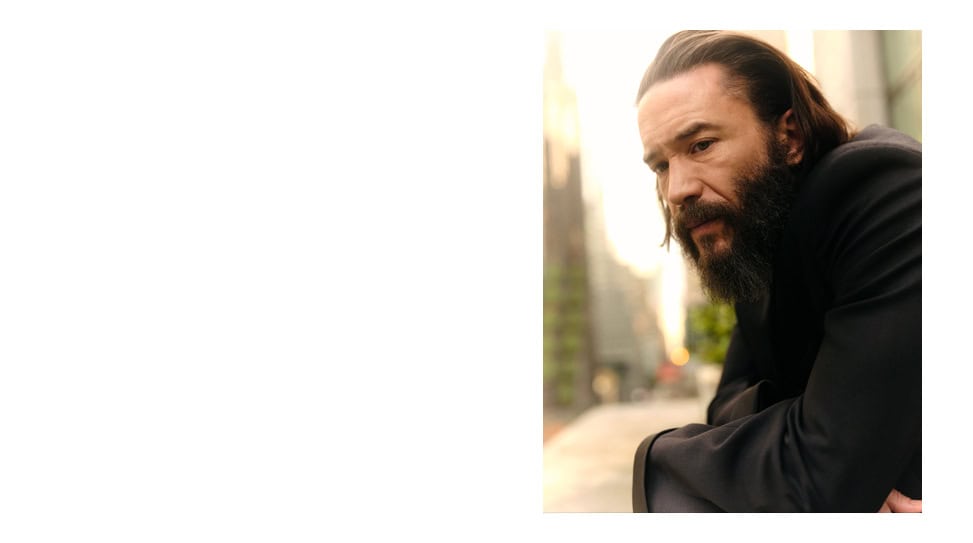

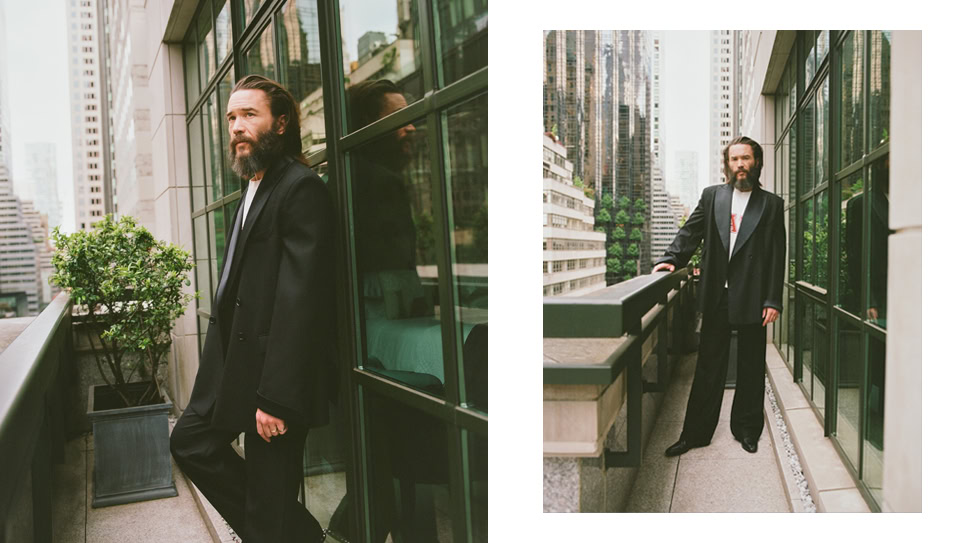
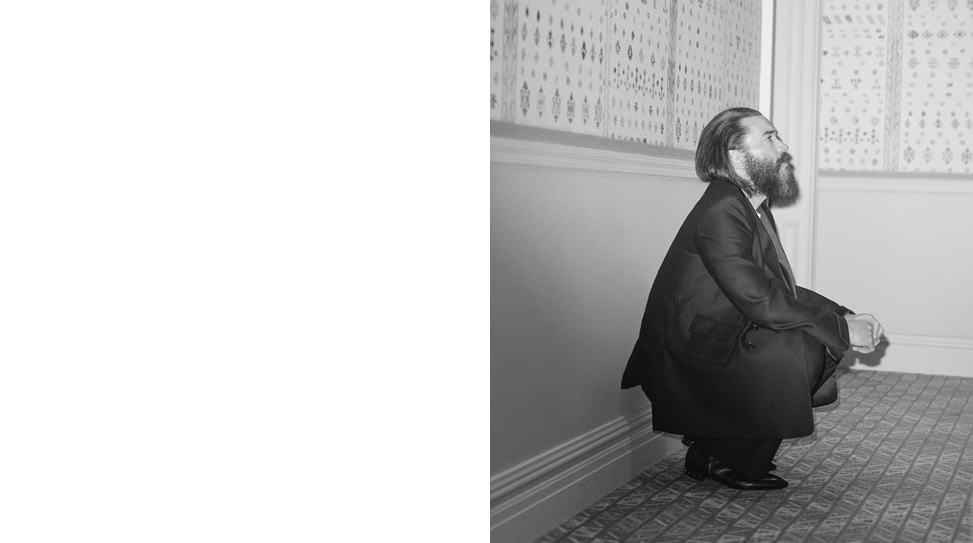
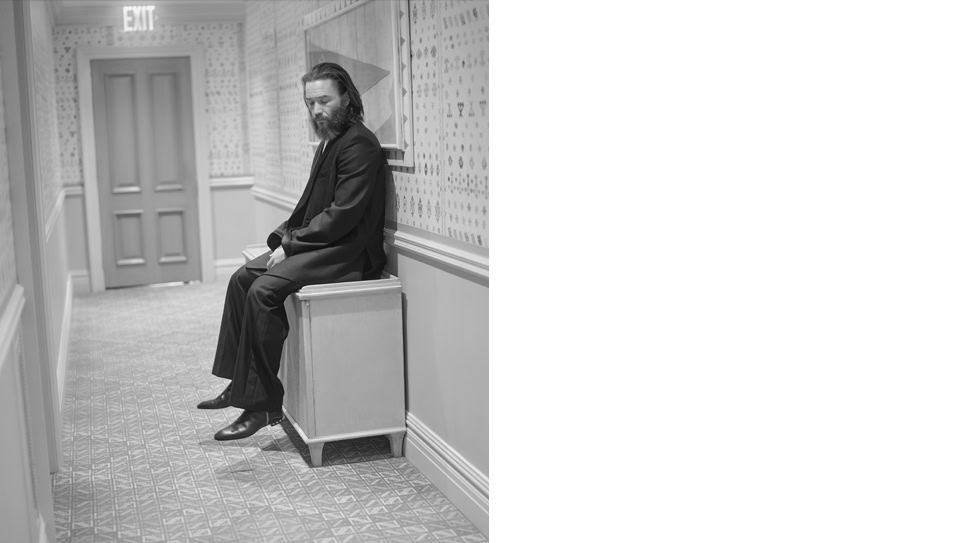
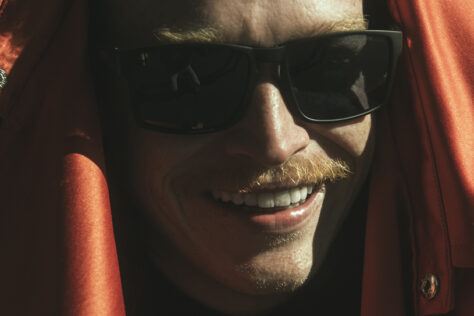 Let the Right One Win
Let the Right One Win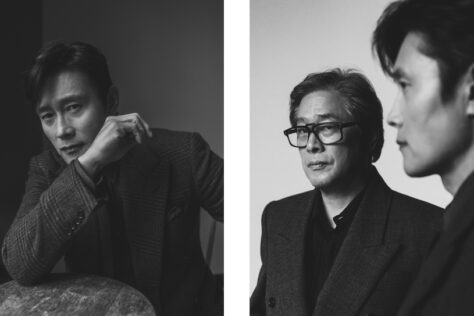 Endangered Species
Endangered Species
No Comments
Comments are closed.